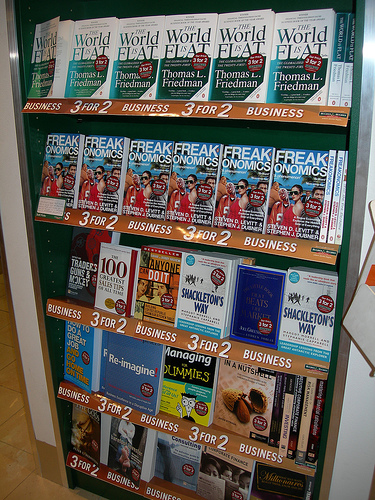Buying your way onto the NYT bestseller list

It's an open secret in the publishing industry that it's not too difficult to game the New York Times bestseller numbers, at least for one or two weeks at a time. The "NYT Bestselling Author" is not just a prestigious badge of honor, it can also be a self-fulfilling prophecy. All you have to do is crack the list once, and you can use that title forever. This can generate untold revenue in the form of future book sales, contracts and consulting gigs.
This unsavory practice has been recorded all over the map. Most recently, people are pointing the finger at a business book by first-time author Soren Kaplan. Leapfrogging hit the bestseller list in its first week out of the gate - after which point, sales dropped off by a staggering 98 percent. That's because marketing firm ResultSource bought up copies in order to boost Kaplan's sales.
This kind of thing happens to political biographies often, because being a bestselling author is seen as greatly boosting your political career. Sarah Palin got caught at it, although she tried to claim that she wasn't gaming the numbers, it's just that SarahPAC (ostensibly an independent entity from Ms. Palin, but not really) was buying copies in order to give them as gifts.
Tales of NYT gaming are rife. Somehow it seems even worse when all the books get returned the next week, as was the case with a book called Networking is Dead at the end of 2012. In its first week after publication, the book was on the bestseller list. In its second week, "more hardcover copies of the book were returned than sold." Ouch!
This is the worst example of throwing money at a problem. The New York Times obviously needs to take some lessons from Google's Page Rank to make its figures harder to manipulate in this way.
Image courtesy Flickr/Lars Ploughman

3 comments